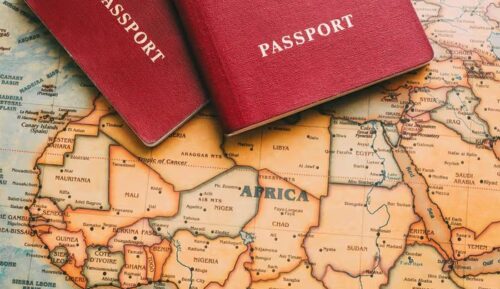
Birthright citizenship, also known as jus soli (“right of the soil”), is a legal principle granting citizenship to individuals based on their place of birth. While this practice is widely embraced across the Americas, European nations tend to adopt a more conditional approach, often incorporating elements of jus sanguinis (“right of blood”), where citizenship is determined by parentage rather than birthplace.
Some nations grant automatic citizenship to all individuals born within their borders, regardless of their parents’ nationality or legal status. These countries include;
- United States – The 14th Amendment guarantees citizenship to nearly all individuals born on U.S. soil. Attempts to alter this law have faced legal challenges.
- Canada – Provides automatic birthright citizenship without restrictions.
- Mexico – Grants unconditional citizenship to all born in the country.
- Argentina – Follows an unrestricted jus soli approach.
- Brazil – Offers automatic citizenship to anyone born within its territory.
- Chile – Gives birthright citizenship without conditions.
However, several European countries and other nations impose specific requirements for birthright citizenship, often linking it to parental residency or legal status. These countries include;
- France – A child born to foreign parents can acquire citizenship at 18 if they have resided in the country since age 11. Early applications can be made at 13 under certain conditions.
- Germany – Citizenship is granted if at least one parent has legally lived in Germany for eight years or holds permanent residency. Dual citizenship must be resolved by age 21.
- Ireland – Citizenship is granted if at least one parent has legally resided in the country for three out of the four years preceding the child’s birth.
- Portugal – Citizenship is available if at least one parent has legally resided in Portugal for two years before the child’s birth.
- United Kingdom – A child can acquire citizenship if at least one parent is a British citizen or has settled status at the time of birth. A child who has lived in the UK continuously for ten years with minimal absences can also qualify.
- Belgium – A child gains citizenship if at least one foreign parent was born in Belgium and has resided there for five of the ten years preceding the birth. Otherwise, the parents must have lived in Belgium for ten years.
- Cyprus – Citizenship is granted if at least one parent is a Cypriot citizen or was born in Cyprus.
- Greece – Citizenship is granted if at least one parent is a Greek citizen or has legally resided in the country for five years.
- Finland – Citizenship is conferred if one parent is a Finnish citizen.
- Luxembourg – A child can acquire citizenship if one parent was born in Luxembourg or is a citizen. Additional conditions apply for residency and parental presence.
- Spain – Citizenship is granted if at least one parent is a Spanish citizen.
- Sweden – A child born after April 1, 2015, receives citizenship if at least one parent is Swedish.
- Malta – Citizenship is granted if at least one parent is a Maltese citizen or was born in Malta.
- Australia – Citizenship is granted if at least one parent is an Australian citizen at the time of birth.
While unrestricted birthright citizenship remains a hallmark of many countries in the Americas, European nations typically impose additional criteria to regulate eligibility. Understanding these varying policies is crucial for individuals navigating citizenship laws and global mobility. As countries continue to refine their immigration policies, the balance between jus soli and jus sanguinis will remain an important aspect of national identity and governance.


